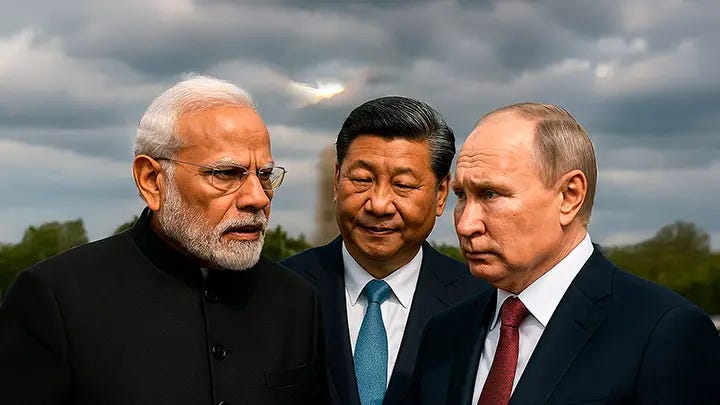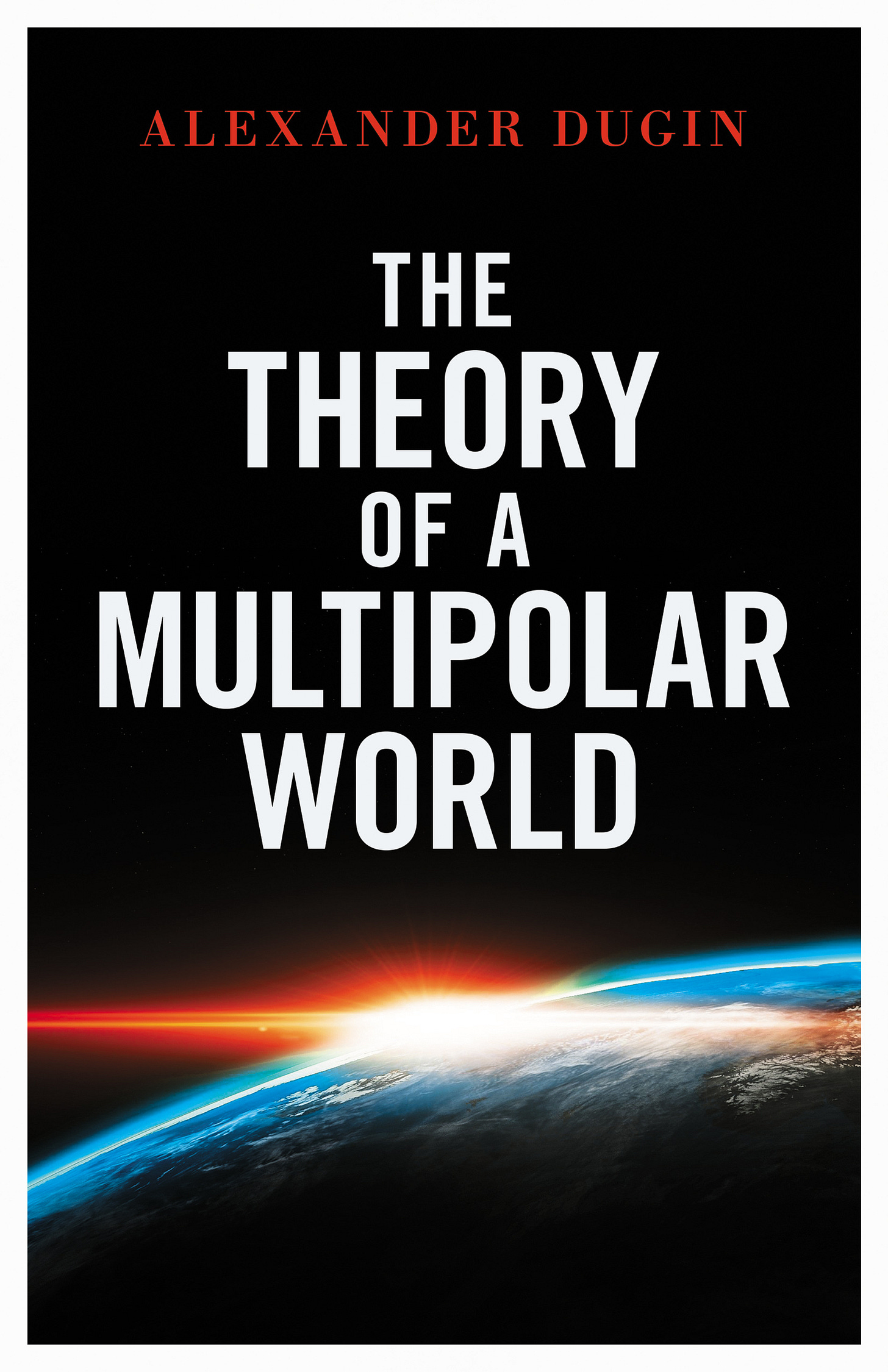The Rise of Russia, India, and China as Civilization-States
Three ancient civilizations step forward as independent poles.
Alexander Dugin notes that Vladimir Putin, Xi Jinping, and Narendra Modi embody ancient civilizations that now assert their sovereignty within their own value systems.
Our states are not identical: some hold advantages in demography, others in economic growth, others in geopolitics, natural resources, weaponry, or technology. Yet none is dependent on the others. These are three independent poles — that is multipolarity. At the core of each lies its own religion, identity, culture, and very long history. This carries enormous significance.
Russia has finally come to see itself not as a part of the West but as the center of an independent Russian world. The same is happening with India and China. At the heart of Chinese identity lies the Confucian idea of the Chinese Empire. Maoism and Deng Xiaoping’s liberalism were methods of modernizing society so it could defend itself against the West. Yet the core remains unchanged. China upholds its own principles and metaphysics.
India, too, with the rise of Narendra Modi’s conservative Bharatiya Janata Party, increasingly understands its opposition to the West as a Vedic civilization. Modi has set a course for the decolonization of Indian consciousness and firmly pursues it, knowing that the Western system does not fit Indian society, which is structured on other principles.
Russian civilization reaches deep into Indo-European society, into the times of the Sarmatians and Scythians, when the Slavs emerged. Yet we became a true civilization by joining Christianity and Byzantinism, with its Greco-Roman heritage. We are the heirs of the culture of the Indo-European code.
After the Great Schism of the Churches in the 11th century, our paths diverged from the West. We continued to carry the code, while the West drifted away from it. In the modern era, the West built a civilization on anti-Christian and anti-Roman principles, breaking with its own essence. We, despite deviations in the 18th and 20th centuries, remained bearers of the Orthodox faith into which Saint Prince Vladimir baptized us.
After the fall of Constantinople, we became the sole heirs of the code. The responsibility fell upon us to be the bulwark of Orthodoxy. It is no coincidence that we are called the Third Rome. We are heirs not only to a thousand-year tradition but to a far deeper legacy, extending to Persia and Babylon, as Konstantin Malofeev writes in his book Empire. For the last 500 years, we Russians have borne the Crown of the Empire, safeguarding the civilization that the West has abandoned.
We are not part of the West; rather, the West is a degenerate version of us. They split away from civilization, while we remained faithful to it. They are prodigal sons who strayed into hell. We remain the bearers of our ancient culture, just as the Chinese are of theirs and the Indians of theirs.
After less favorable epochs, we, three reborn civilization-states, meet again, having recognized the depth of our own essence. Before us stands a common enemy: the West. Trump might have become another sovereign pole if he had overcome the hegemony of the globalists, as he intended. Yet he has failed.
The three poles of the multipolar world already exist. But the club of the multipolar world is open. In BRICS, a broader format than the Shanghai Cooperation Organisation, there is space for the Islamic, African, and Latin American worlds. The more the West attacks us, the closer we draw to one another. Even Trump contributes his part, making this process irreversible — under his pressure India joined us.
There is something eschatological here. We now feel our own selves and our destiny more piercingly than at any time in the last 300 years. The same holds true for the Chinese and the Indians. India, once a colony, is only now truly awakening, just as China returns to its Confucian core. What was at the beginning reveals itself again at the end.
We are entering the era of civilization-states, while the West, in trying to maintain its hegemony, collapses. It is already clear to all: its hegemony has ended. This is its agony.
(Translated from the original Russian version on Tsargrad TV)





👍👍👍 🔥🔥🔥 !!!
Estimado Alejandro: ciertamente el señor Donald Trump es un acertijo difícil de desentrañar, sometido a enormes presiones junto a quienes adhieren allí al espíritu MAGA. En líneas gruesas, todo indica que él ha sucumbido al AngloSionismo, condenando a occidente a la intrascendencia. Sin embargo, en esta parte del mundo, en mi caso en Chile, existimos millones de seres humanos que compartimos el ideal de un mundo multipolar y multinodal, donde se respete la soberanía personal y nacional de cada persona y de cada Nación. Sólo el Padre del Universo sabe cómo discurrirá la corriente de energía que todo lo mueve.